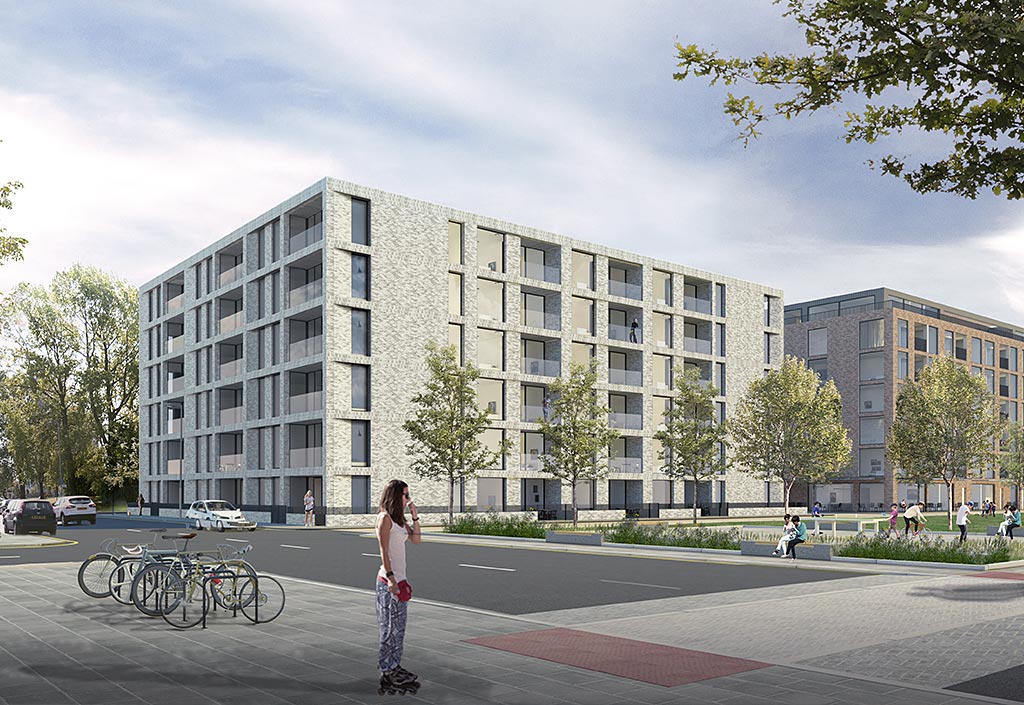WHAT DOES AN ARCHITECT DO?
In the dynamic world of construction and design, the role of an architect is often shrouded in mystery. Most people know little about what architects do before they invest, so they need to research it before investing. So, what does an architect do?
Architects are responsible for the aesthetics, functionality, and safety of buildings. From conceptualization to project completion, architects are involved in the many various stages of the construction process.
As an architectural office, Andrew Wallace Architects is dedicated to unraveling these questions and shedding light on the intricacies of the architect’s profession. To find out what an architect does, how their work differs in residential and commercial spaces, and whether the demand for architects will persist in the coming decade – continue reading.
What Does an Architect Actually Do?
Contrary to popular belief, architects are not solely involved in drawing plans. Architects are essentially the masterminds behind the aesthetics, functionality, and safety of buildings.
From conceptualization to project completion, architects are involved in various stages of the construction process. Their responsibilities include collaborating with clients, understanding their needs, creating designs, and ensuring that the final structure complies with building regulations.
Architects act as project managers, overseeing construction processes, and liaising with contractors and other professionals. Architects are crucial in translating clients’ visions into tangible structures, considering factors such as spatial efficiency, environmental impact, and aesthetic appeal.
Do Architects Build or Design?
Architects are primarily designers, envisioning and planning structures that align with both form and function. However, they are not directly involved in the physical construction. Instead, architects work closely with builders and contractors to bring their designs to life. This collaborative approach ensures that the final product is a harmonious blend of creativity and practicality.
What To Expect From An Architect
When engaging the services of an architect, clients can expect a personalized and collaborative experience. Architects listen to clients’ ideas, preferences, and requirements to create a customized design that reflects their vision. Moreover, architects bring valuable project management skills to the table.
Architects coordinate with contractors, builders, and other professionals, ensuring seamless communication and timely execution. The result is not just a physical structure but a harmonious blend of creativity, functionality, and adherence to regulatory standards. In essence, the collaboration with an architect promises a tailored and rewarding experience.
Residential Architect Versus Commercial: What’s The Difference?
Residential and commercial architects cater to distinct needs. Simply put, residential architects are dedicated to crafting homes that seamlessly integrate with the occupants’ lifestyles and preferences. Their focus lies in creating personalized spaces that reflect individual taste and comfort.
Conversely, commercial architects undertake expansive projects, including offices, retail spaces, and industrial complexes. Their emphasis is on optimizing functionality, ensuring efficiency in operational layouts, and incorporating branding elements. While residential architects prioritize the intimate needs of individuals and families, commercial architects navigate the complexities of larger-scale designs, striving to create spaces that not only serve practical purposes but also contribute to the overall identity and success of businesses and enterprises.
Will Architects Be Needed In 10 Years?
Despite advancements in technology, the unique skill set that architects bring to the table remains indispensable. Architects are not just designers; they are visionaries who can creatively solve complex problems, ensuring that structures are both aesthetically pleasing and functionally efficient.
The evolving landscape of construction, environmental concerns, and the increasing emphasis on sustainable design all contribute to the continued need for architects. As cities expand and technology advances, architects play a crucial role in designing spaces that meet the demands of a changing society. From creating energy-efficient buildings to incorporating smart technologies, architects are at the forefront of shaping the future of construction.
Moreover, the push for green and eco-friendly designs positions architects as key players in the development of sustainable communities. The ability to balance creativity with practicality and address issues such as climate change and resource conservation underscores the enduring relevance of architects in the next decade and beyond. Overall, the dynamic and evolving nature of the construction industry ensures that architects will continue to be in demand as creators and stewards of the built environment.
Is it Worth Using an Architect?
Deciding whether to hire an architect depends on various factors. While some may question the additional cost, the value architects bring to a project usually outweighs the expenses. Architects can optimize space, enhance functionality, and ensure that the design aligns with both regulatory requirements and the client’s vision.
Do I Need an Architect?
Feeling unsure about whether you need to bring in an architect? Check out these signs that indicate it might be a good call to hire a professional.
- Complexity of the Project: If your project involves intricate designs, multiple stakeholders, or compliance with building regulations, an architect can navigate these complexities seamlessly.
- Innovative Designs: If you seek unique and innovative designs that go beyond conventional structures, an architect’s creative expertise can bring your vision to life.
- Long-Term Value: Investing in an architect can add long-term value to your property. Their designs not only enhance aesthetics but also improve functionality and sustainability.
- Regulatory Compliance: Architects are well-versed in local building regulations. If your project requires compliance with specific guidelines, an architect ensures that all legal requirements are met.
Why Choose Andrew Wallace Architects
In the bustling architectural landscape, Andrew Wallace Architects is known for being innovative and excellent. They focus on creating unique designs, paying attention to details, and working closely with others. The firm has completed many projects that are both stylish and practical.
As the architectural realm evolves, the importance of architects in the design and construction process remains extremely important in turning ideas into actual buildings. Whether you’re embarking on a residential or commercial project, the decision to involve an architectural practice like Andrew Wallace Architects is an investment in the realization of your vision and the creation of enduring, aesthetically pleasing spaces.
Contact us today to schedule a consultation and take the first step toward bringing your architectural vision to life.
Contact Andrew Wallace Architects

